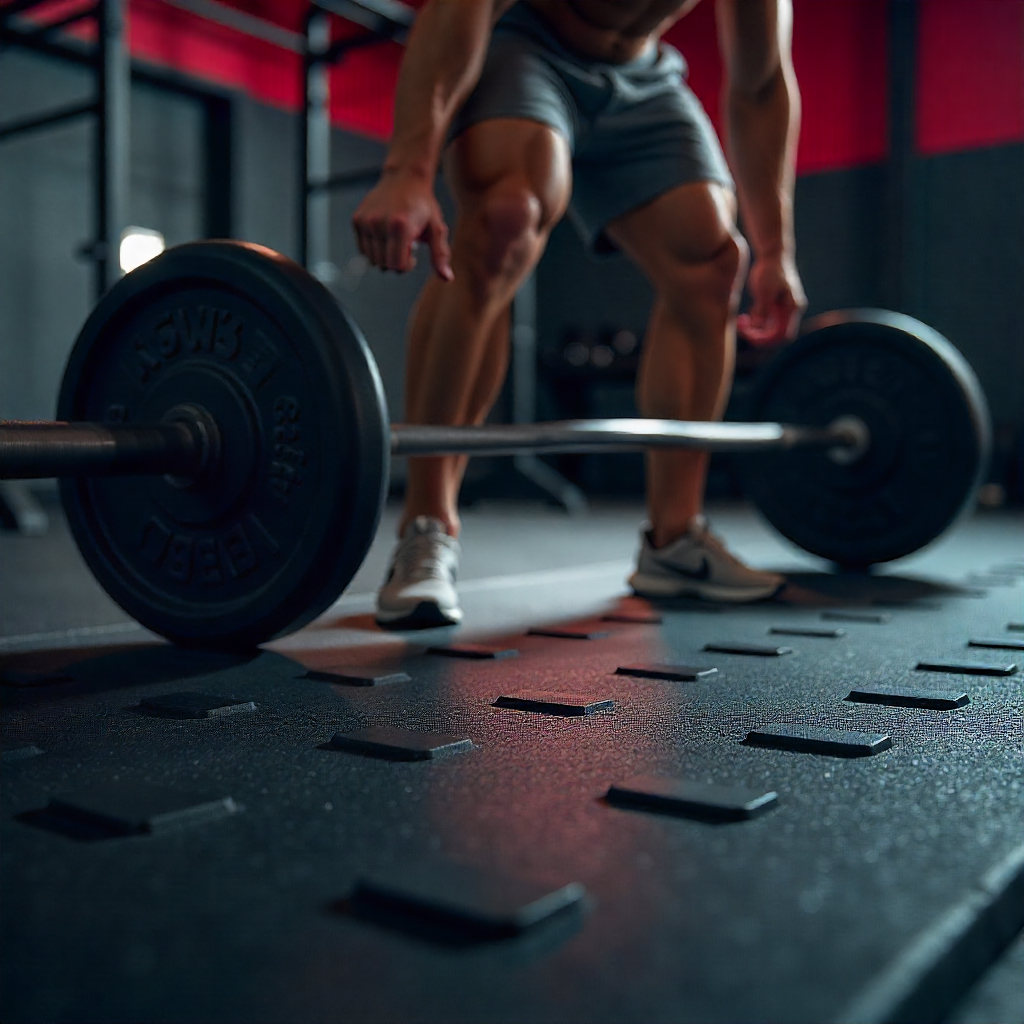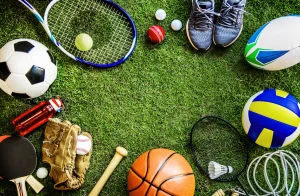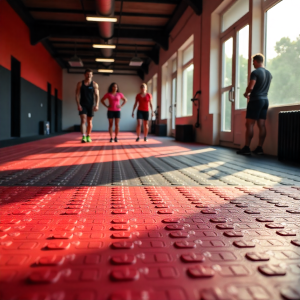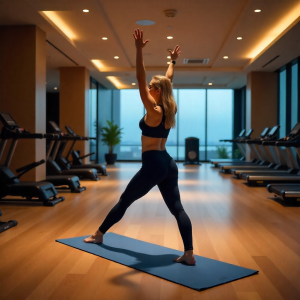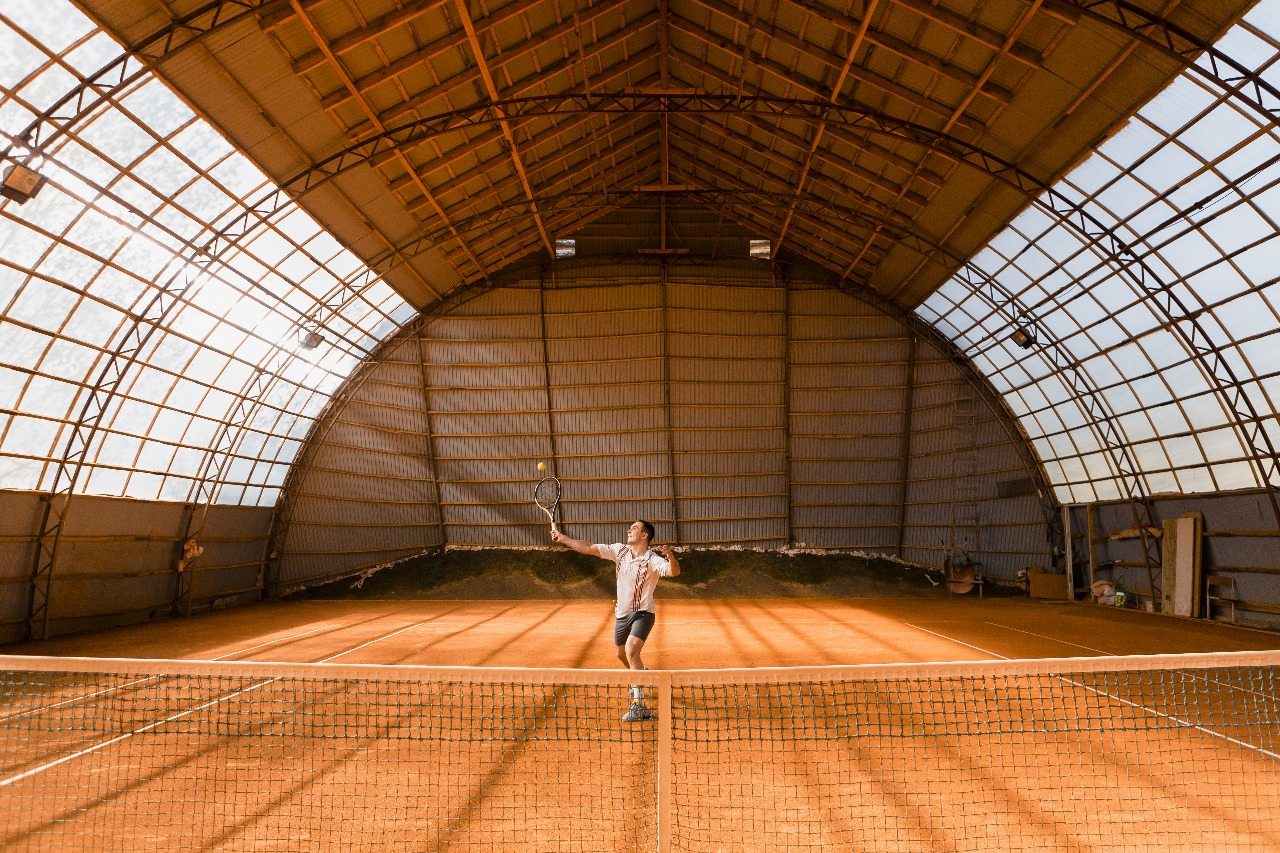Injuries in sports can end careers and affect quality of life. One of the most effective ways to protect athletes is by choosing the right sports flooring for injury prevention. The right flooring reduces impact stress, improves traction, and supports athlete biomechanics—helping minimize both acute and chronic injuries.
This guide covers the top sports flooring types designed to maximize safety while enhancing performance, along with maintenance tips and future trends.
What Is Sports Flooring for Injury Prevention?

Sports flooring for injury prevention refers to surfaces engineered to minimize impact forces and reduce slip-related accidents. These floors combine shock absorption, slip resistance, and durability to create safer environments that protect athletes.
Why Injury Prevention Matters in Sports Flooring
Athletes face multiple risks during training and competition, including:
-
Overuse injuries from repetitive impact on hard surfaces
-
Acute injuries caused by slips and falls
-
Long-term joint and muscle damage due to inadequate floor cushioning
-
Mental stress caused by unsafe playing conditions
Proper flooring mitigates these risks by absorbing impact forces and providing reliable traction, allowing athletes to perform confidently and safely.
Key Performance Factors
The essential qualities of injury-preventive sports flooring include:
-
Shock absorption: Cushions joints and muscles from impact
-
Traction and slip resistance: Prevents accidental slips and falls
-
Surface resilience and durability: Maintains performance over time
Top Sports Flooring Options for Injury Prevention
1. Hardwood Sports Flooring
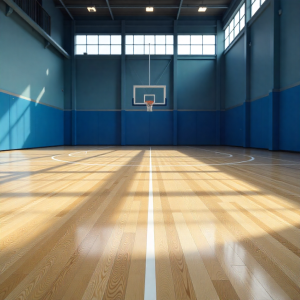
Hardwood remains the preferred surface for indoor basketball and volleyball courts. Its natural grain provides grip, while engineered finishes enhance slip resistance. Combined with a proper subfloor, hardwood offers excellent shock absorption, protecting athletes’ joints during intense play.
2. Synthetic Sports Flooring
Typically made from polyurethane or vinyl, synthetic floors provide consistent cushioning and traction across multi-purpose gyms. Their versatility makes them suitable for various sports, including aerobics, indoor soccer, and fitness classes, offering great injury prevention benefits.
3. Rubber Flooring Systems
Rubber floors are popular in weight rooms and functional training areas due to their superior shock absorption and slip resistance. Their resilience reduces impact forces during lifting or jumping, helping prevent musculoskeletal injuries.
4. Poured-in-Place Rubber
This seamless rubber flooring option is durable and low maintenance. Its continuous surface eliminates tripping hazards and provides uniform shock absorption and traction, ideal for high-traffic sports and fitness areas.
5. Modular Sports Flooring
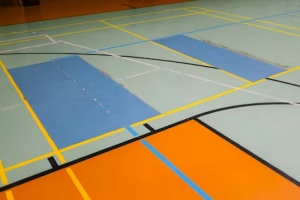
Modular floors consist of interlocking panels that can be customized for different sports and replaced easily when worn. They provide adjustable cushioning and excellent grip, making them ideal for event spaces or multi-use courts.
6. Shock Pad Underlays
Installing shock-absorbing pads beneath flooring surfaces significantly improves impact protection without sacrificing slip resistance. These pads are crucial in gymnasiums and indoor courts to enhance injury prevention.
7. Hybrid Flooring Systems
Hybrid systems combine hardwood or synthetic surfaces with shock-absorbing layers, balancing the benefits of cushioning and grip. These floors are designed for high-performance sports environments where both safety and game quality are priorities.
How Sports Flooring Reduces Common Injuries
Impact Injuries and Shock Absorption
Sports floors absorb the energy generated by running, jumping, and sudden stops, reducing stress on bones, joints, and muscles. This cushioning effect lowers the risk of stress fractures, joint inflammation, and chronic conditions that can shorten athletic careers.
Slip-Related Injuries and Traction
Slip-resistant surfaces provide reliable grip even when floors are wet or dusty, preventing sudden falls that lead to sprains, ligament tears, and fractures. Maintaining proper traction is critical for athlete safety, especially during quick directional changes.
Maintenance and Installation Best Practices
Proper Maintenance for Injury Prevention
Maintaining clean, debris-free floors preserves traction and cushioning. Regular inspections for damage and timely repairs ensure flooring continues to protect athletes effectively.
Professional Installation Is Key
Accurate installation guarantees consistent surface performance. Improperly installed flooring can create uneven spots that increase injury risk.
Future Trends in Sports Flooring for Injury Prevention
-
Smart Flooring: Embedded sensors monitor impact and traction, providing real-time safety data for coaches and trainers.
-
Eco-Friendly Materials: Sustainable flooring options reduce environmental impact without compromising injury prevention.
-
Customizable Cushioning: Flooring systems that adapt shock absorption and traction levels to specific sports or user needs.
Conclusion: Investing in Sports Flooring Is Investing in Athlete Safety
Choosing the right sports flooring for injury prevention protects athletes from both acute and chronic injuries while enhancing their performance. Prioritizing shock absorption and slip resistance creates safe, durable, and high-performance environments. Partner with professionals to select and install flooring systems tailored to your facility’s unique needs and ensure long-term athlete health.Learn more at www.anfield.ae.

